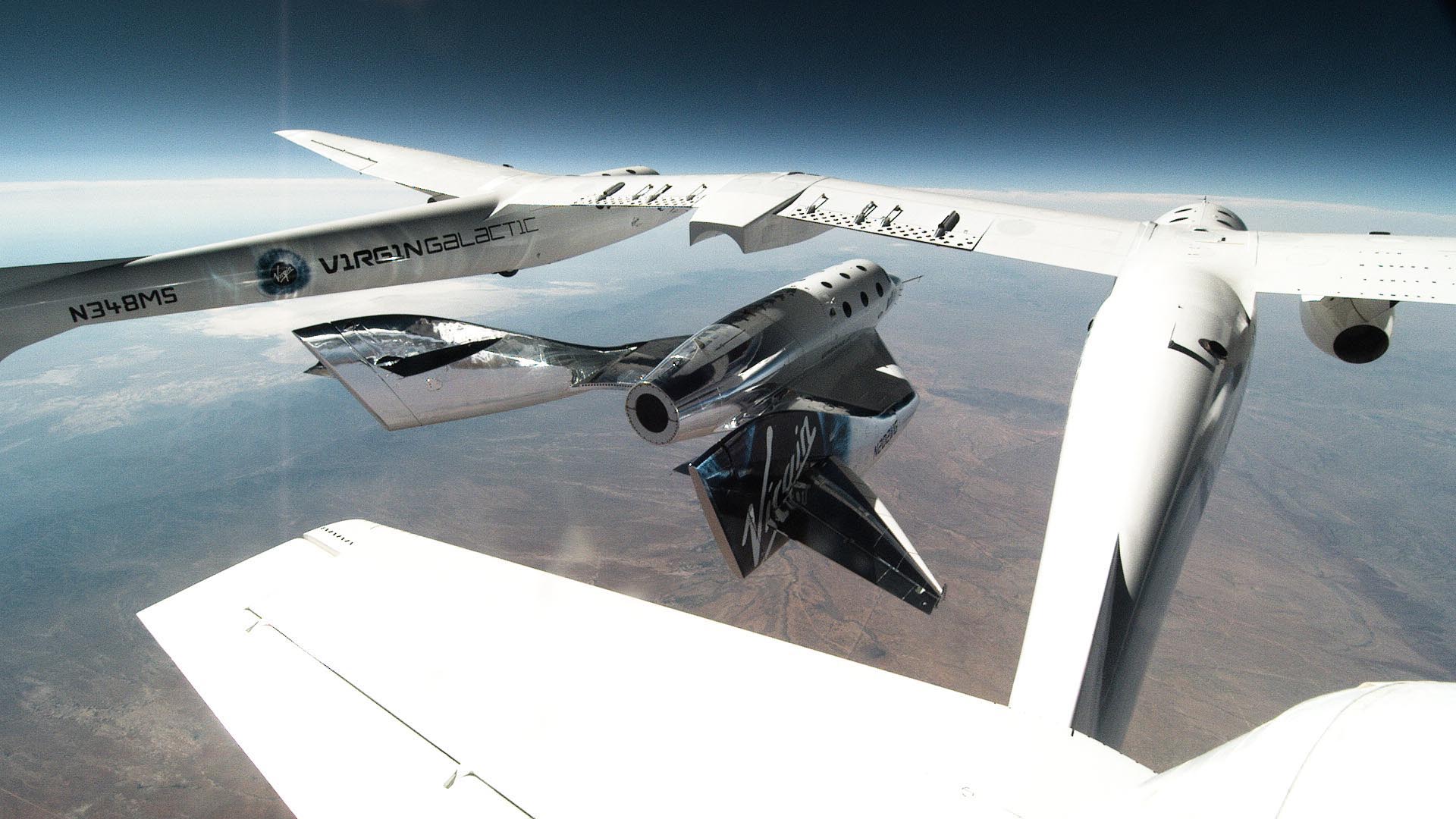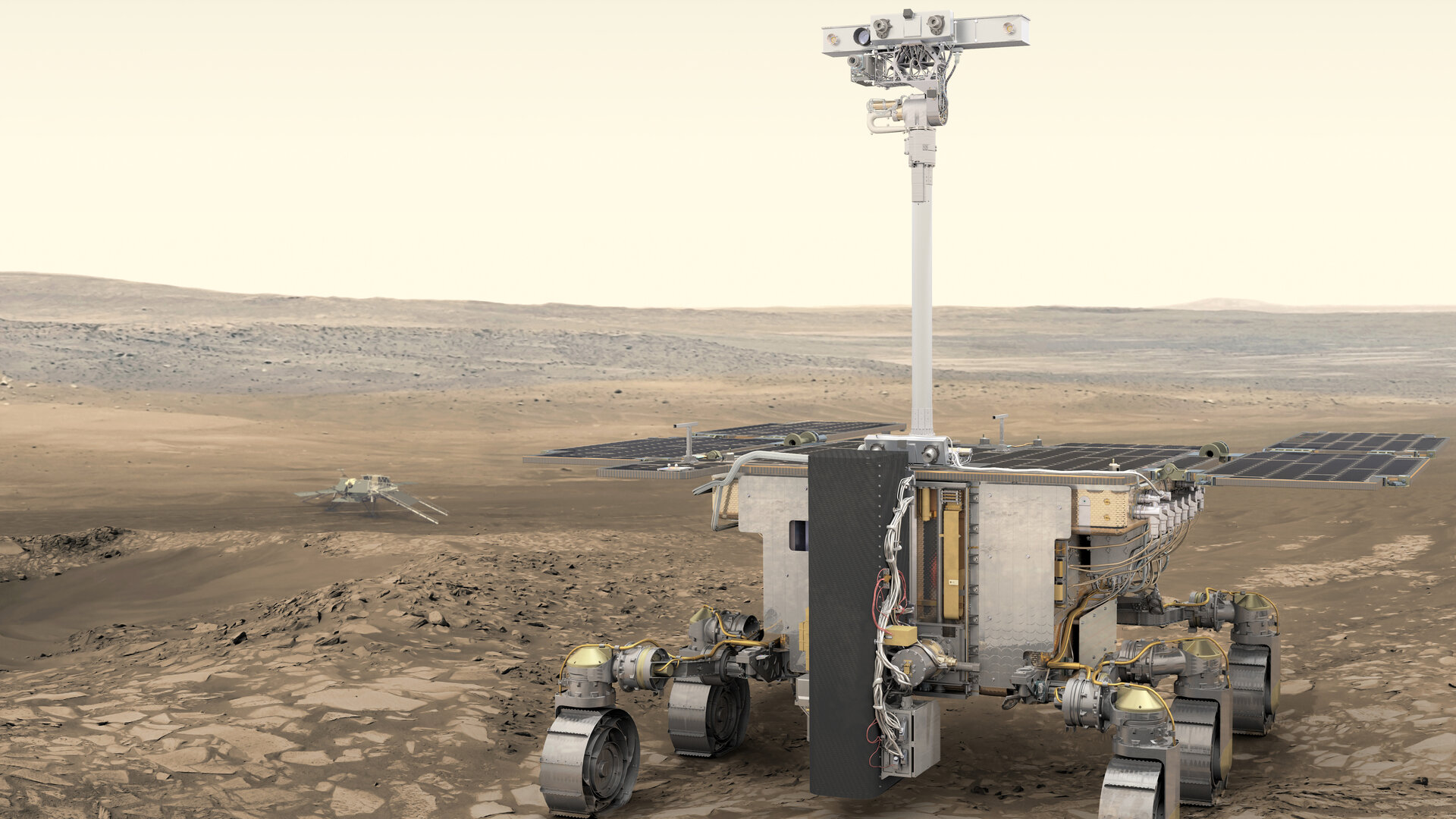
Virgin Galactic will reach space again just two weeks from now, if all goes according to plan.
Virgin Galactic aims to launch its VSS Unity space plane on its third piloted test flight to suborbital space between Nov. 19 and Nov. 23, according to an update the company released on Thursday (Nov. 5).
The upcoming flight will tote some revenue-generating payloads via NASA's Flight Opportunities Program, the update notes. The planned mission will mark Unity's first trip to space since February 2019 and its first-ever spaceflight from Virgin Galactic's commercial hub, Spaceport America in New Mexico.
"This will be the first-ever human spaceflight conducted from New Mexico,” Virgin Galactic CEO Michael Colglazier said in the update.
Related: How Virgin Galactic's SpaceShipTwo works (infographic)
Unity's two other suborbital test missions took off from, and landed at, Mojave Air and Space Port in southeastern California. This past February, Unity relocated to Spaceport America to begin the final phases of its test campaign.
Thursday's update served to announce Virgin Galactic's financial results from the third quarter of 2020, which ended on Sept. 30. During the third quarter, the company incurred a net loss of $77 million, compared to a $63 million net loss in the year's second quarter. But Virgin Galactic's "cash position remains strong, with cash and cash equivalents of $742 million as of September 30, 2020," the update reads.
Breaking space news, the latest updates on rocket launches, skywatching events and more!
The announcement contains other interesting details as well. For example, it states that the company will reopen ticket sales after Richard Branson, the billionaire founder of the Virgin Group, flies aboard VSS Unity next year. (Branson has long said he wants to be on one of the vehicle's early flights.)
The update also highlights the recent news that planetary scientist Alan Stern, who leads NASA's New Horizons mission to Pluto and beyond, has been selected via the Flight Opportunities Program to fly to suborbital space with Virgin Galactic.
VSS Unity is the latest SpaceShipTwo space plane, a six-passenger, two-pilot vehicle designed to take people and payloads on brief trips to suborbital space. SpaceShipTwo lifts off from a runway under the wings of a big airplane called WhiteKnightTwo. At an altitude of about 50,000 feet (15,000 meters), SpaceShipTwo drops free and powers itself to suborbital space.
Passengers aboard the spacecraft will get to experience a few minutes of weightlessness and see the curvature of Earth against the blackness of space before they come down to Earth for a runway landing, Virgin Galactic representatives have said. About 600 people have bought a ticket for the experience, at a price, most recently, of $250,000 apiece.
Virgin Galactic's manufacturing subsidiary, California-based The Spaceship Company, is currently building two more SpaceShipTwo vehicles. One of them is almost finished; it's expected to be rolled out in the first quarter of 2021, according to Thursday's update.
And there could be even more SpaceShipTwo vehicles to come. Virgin Galactic's hangar at Spaceport America is big enough to hold five SpaceShipTwos and two WhiteKnightTwos simultaneously, company representatives have said.
Mike Wall is the author of "Out There" (Grand Central Publishing, 2018; illustrated by Karl Tate), a book about the search for alien life. Follow him on Twitter @michaeldwall. Follow us on Twitter @Spacedotcom or Facebook.
Join our Space Forums to keep talking space on the latest missions, night sky and more! And if you have a news tip, correction or comment, let us know at: community@space.com.

Michael Wall is a Senior Space Writer with Space.com and joined the team in 2010. He primarily covers exoplanets, spaceflight and military space, but has been known to dabble in the space art beat. His book about the search for alien life, "Out There," was published on Nov. 13, 2018. Before becoming a science writer, Michael worked as a herpetologist and wildlife biologist. He has a Ph.D. in evolutionary biology from the University of Sydney, Australia, a bachelor's degree from the University of Arizona, and a graduate certificate in science writing from the University of California, Santa Cruz. To find out what his latest project is, you can follow Michael on Twitter.
